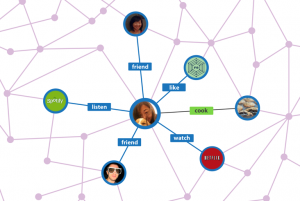Which of my friends’ wall posts did I like last month? What are the most popular bars in New York for doctors to frequent? What kinds of beer do my soccer player friends like to drink?

These are just some of the questions anyone will be able to search for using Facebook’s new Graph Search to find anything and everything by extracting data from Facebook’s vast social network. It’s basically a customized database that will let you access specific social recommendations on demand.
I commend Facebook on one of their biggest announcements to date. Graph Search promises to be a long, challenging project that will bring Facebook and Google into an extended battle over the coveted search market. Since the turn of the century, Google has dominated the search space. It’s taken them years of developing complex algorithms to get to the point of successfully monetizing their data. A bevy of other companies, from Microsoft to Yelp, have been trying to capture a piece of the search pie ever since.
Facebook Graph Search has several competitive advantages. Facebook’s 800 million users share a treasure trove of diverse types of data on the website, from brand loyalty to videos. Facebook is also one of the Web’s stickier sites — Americans on average spend 8 hours on the site per month. Facebook could also change the game with its natural language queries. Instead of entering a search string like: {volleyball players-cupcake preferences–children–recipes} and receiving a list of websites that have been ranked by a secret algorithm, you’ll be able to find your answer by simply asking the Graph Search engine: “What kinds of cupcakes do my volleyball player friends eat?” In its final jab at Google, Facebook Graph is using Microsoft’s Bing as a backup search engine for users looking for more generalized information.
Will Facebook’s customized social search be compelling enough to convince people to switch? In terms of monetization, Graph Search is Facebook’s biggest opportunity since mobile. Businesses can use it to learn what people want to buy, as well as which questions people are asking before they make purchasing decisions. Google has long been capitalizing on such “low funnel” prospects via its AdWords ads that appear on the right hand of its search results, but these types of customers are new to Facebook, according to Wired.
Just like Facebook’s IPO, Graph Search will have a ripple effect on the rest of the industry, driving innovation as money continues to pour into monetizing big data. The main question that Facebook has to answer now is will the company be able to customize its big data in a meaningful way? Graph Search can already parse data into a useful context, but can it deliver the right information at the right time? Will it be intelligent enough to become more like a personal assistant than a search engine? Only time will tell.